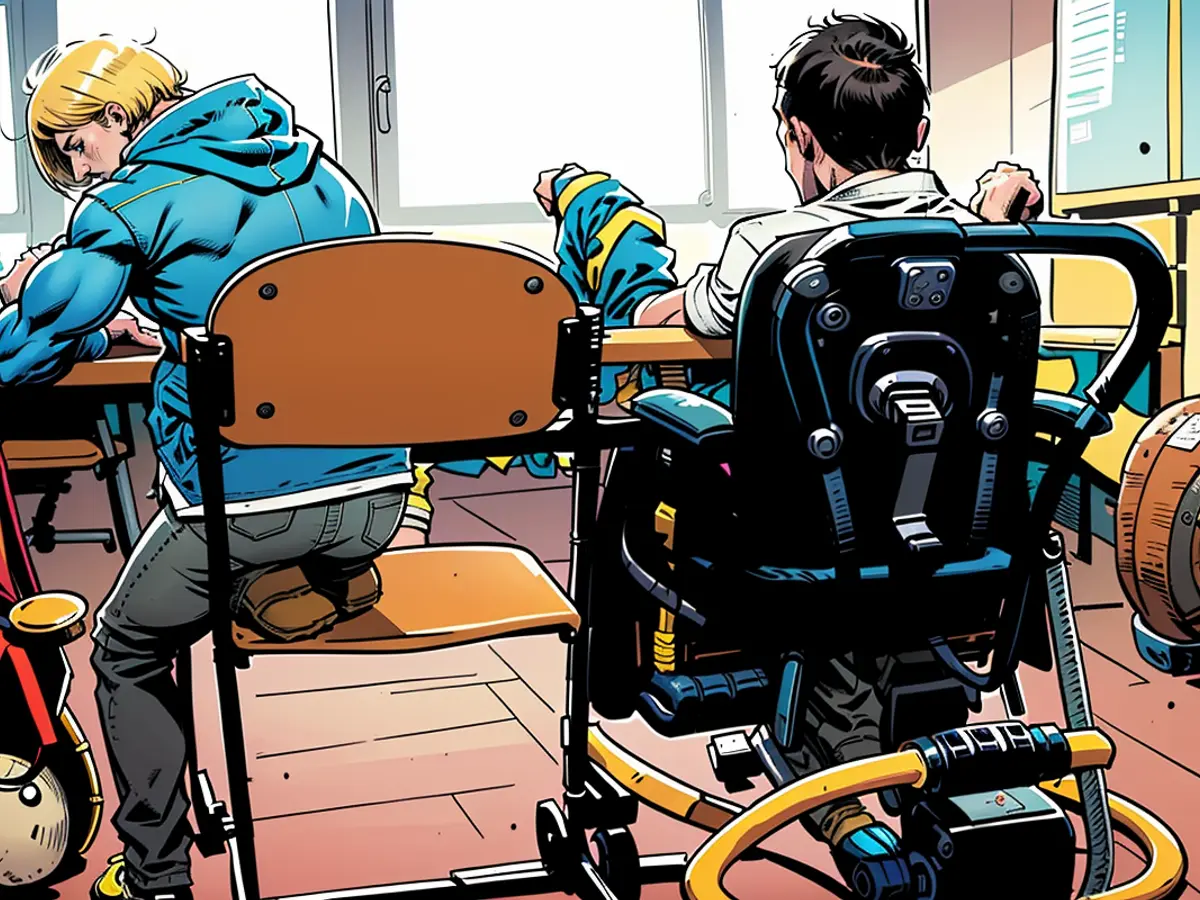Youths with Disabilities Frequently Express Dissatisfaction
Many young folks in Germany generally enjoy a content life, but young individuals with disabilities often paint a different picture. They frequently feel prejudiced against and have less access to social activities. There's also a heightened sense of uncertainty about the future.
Research conducted by Aktion Mensch, a social organization, titled the "Youth Inclusion Barometer," validates these claims. This study surveyed young people, both with and without disabilities, aged 14 to 27.
The findings reveal that only half (53%) of young people with disabilities are overall content with their lives, in contrast to more than three-quarters (78%) of those without disabilities. Discriminatory experiences are more common among individuals with disabilities, with 61% reporting such incidents, compared to 85% among young people with disabilities.
More isolated and less autonomous
The research further highlights the discrepancy in social participation. Young people with disabilities report feeling lonely twice as often (26%) as their non-disabled counterparts (13%). They also find it three times harder to form new friendships. Additionally, they feel less autonomous and less free to choose their school, training, or academic pursuits. With 41%, they also exhibit higher levels of concern about the future compared to young people without disabilities (16%).
Christina Marx, Aktion Mensch's spokesperson, emphasized the importance of inclusion from an early age, stating, "The statistics clearly show that while we've still got a long way to go before society embraces diversity as the norm or even sees it as an advantage. Inclusion needs to be part of daily life from the get-go to ensure everyone benefits and discrimination doesn't even begin."
The study conducted by Aktion Mensch highlights that young people with disabilities are significantly more isolated, with 26% reporting feeling lonely twice as often as their non-disabled peers. Furthermore, this group finds it three times harder to form new friendships compared to their able-bodied counterparts.
The findings of 'The Youth Inclusion Barometer' also suggest that young individuals with disabilities have less autonomy and freedom to choose their school, training, or academic pursuits, with 41% expressing higher levels of concern about their future compared to young people without disabilities.






